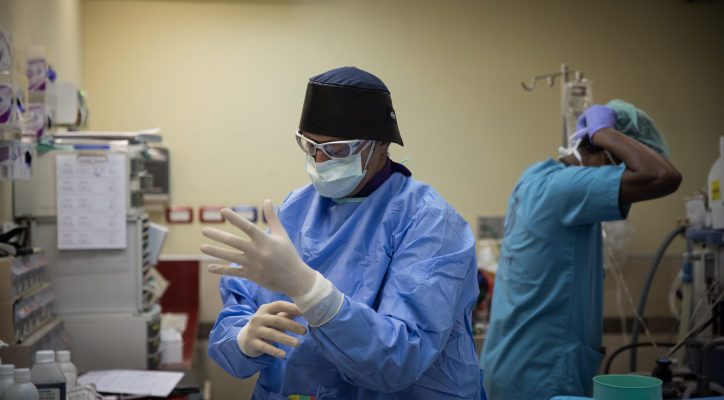Organ donations jumped 13 percent year-over-year in 2018.
By Aryeh Savir/TPS
Israel saw a record number of organ transplants in 2018, data presented by Israel’s National Transplant Center shows.
A total of 592 transplants were performed in Israel in 2018 using organs from live and deceased donors, representing a 13 percent increase over 2017.
A bit over half of the organ donations, 334, came from deceased donors. Of those, 100 involved liver transplants, and 25 were heart transplants, a 44 percent increase over heart transplants in 2017.
The National Transplant Center issues the Adi card, named after Ehud Ben Dror, who died while waiting for a kidney donation. Holders of an Adi donor card testify to their willingness to donate their organs after death, for the sake of saving the lives of patients waiting for a transplant. Close to one million Israelis have an Adi card, while some 40,000 joined the Adi family in last year.
2018 also saw a new record in the number of families who consented to donate their deceased relatives’ organs. Of the 173 instances in which families of patients who were brain-dead were approached, 111 agreed to have the organs donated. In the four cases in which the patients’ heart had stopped beating, all of the families gave permission.
The most significant rise was seen in hearts donations when 26 patients received a new heart, a 44 percent increase over 2017.
The majority of organ transplants that came from live donors were of a kidney. Relatives donate d125 kidneys, while the other 106 were donated by non-relatives for altruistic reasons.
Gabi Revivo, who founded the Tormim Chayim organization (Donating Life/Live Donors in Hebrew) which promotes kidney donations and who himself has donated his kidney to a complete stranger, told TPS that his organization too has witnessed an increase in the number of donations over the past year.
When asked how his organization promotes such a seemingly complex issue, he explained that the key was showing the low risk the donor was taking while showing the life-changing difference it would make for the recipient patient.
When people are faced with this reality, the choice is simple, Ravivo said. He added that many friends of donors are exposed to this altruistic act and decide to donate as well.
Some 1,200 patients in Israel are waiting for a transplant, and 40 percent of them will die of their illness. Potential donors are submitted to a rigorous set of test, and only 30 percent are finally cleared for donation.
Asked if he thinks there is something specifically Israeli about organ donations, he said he had no doubt about it. Israel’s organ donation stats are very high in comparison with other countries, he noted. He further pointed out that Israeli society, in general, is a very giving and supportive one.
The main point is to have a sensitive heart, he said, and the sense of good you feel after such a massive act of giving will accompany you throughout your life.




